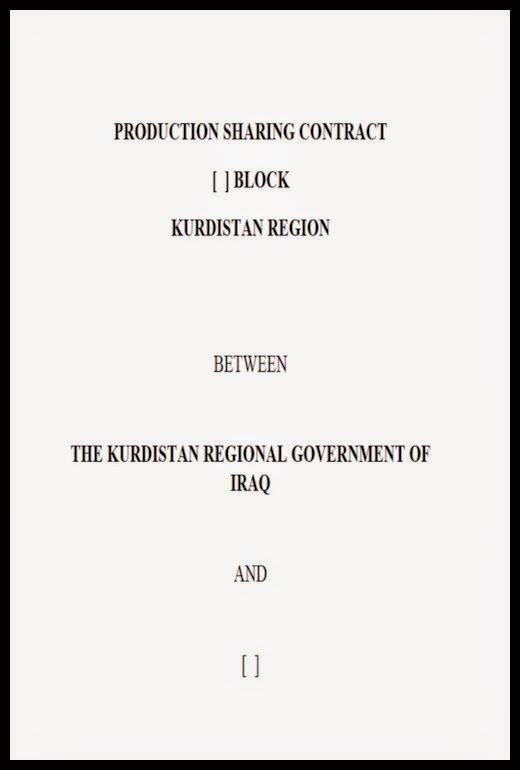One of
the most widely used agreements in the oil and gas business is the Production Sharing Contract (P.S.C.)
— the other two most important contract types are the "concession"
and the "service contract". The P.S.C. contract type was created
in Indonesia in the 1960s and modeled after that country's longstanding
agricultural agreements. Indonesian Law 44, enacted in 1960, restricted oil and
gas recovery to state companies, but it allowed foreign companies to operate as
contractors to state companies.
A good
example of a modern P.S.C. is the P.S.C. model developed by the Kurdistan
Regional Government (K.R.G.) in 2007. In this regard, the Ministry of Natural Resources (M.N.R.) of the K.R.G. has made available on its website all the P.S.C.s that it has signed with exploration and production companies.
Under a
P.S.C. the contractor makes risk investments and provides technical and
management services in return for a share of production to recover its costs (“Cost Oil”) and a share of the
remaining oil (“Profit Oil”) as
its profit. The contractor has the right to market its share of oil and
"book" the reserves. In the production phase, however, the government
of the hosting country may take a direct stake in the project. In general, the
extent of the government's participation varies from less than 30 percent to as
much as 70 percent. As a consequence, the government shares "rewards and
technical, price, and operating cost risks with the I.O.C. in proportion to its
share in the project" (Maurer - Tarontsi, 2009). In addition, the
government collects taxes and royalty payments.
 |
| Source: The Ministry of Natural Resources of the K.R.G. |


No comments:
Post a Comment
Note: Only a member of this blog may post a comment.